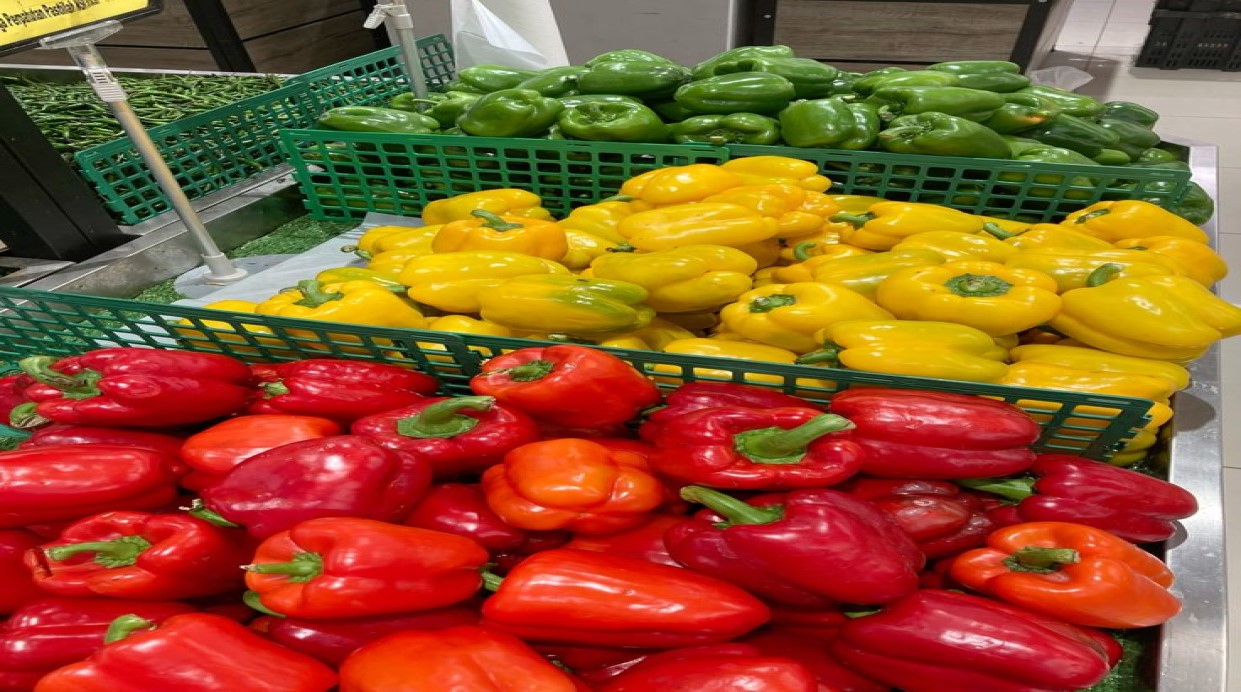The importance of grading capsicum

Grading capsicum, commonly known as bell pepper, is a vital process in post-harvest handling that determines the crop’s overall quality, marketability and profitability. Whether grown for local consumption or export, proper grading ensures that the produce meets both consumer expectations and market standards. This seemingly simple process,sorting capsicum according to size, shape, color and general quality has a far-reaching impact on farmers’ incomes, brand reputation and the country’s agricultural competitiveness.
Enhancing market value and profitability
One of the primary reasons grading is essential lies in its direct influence on market value. Buyers, supermarkets and exporters prefer uniformly graded capsicum because it offers consistency, visual appeal, and reliability in supply. Consumers are naturally drawn to bright, evenly shaped and clean peppers, making appearance a key selling factor.
Premium-grade capsicum those with uniform size, glossy skin and vibrant color fetch higher prices in both local and international markets. For example, supermarkets often pay a premium for produce that meets strict size and color standards, as it fits neatly on shelves and attracts shoppers. In contrast, mixed-quality or ungraded produce tends to sell at lower prices because it lacks uniformity, has visible defects or doesn’t meet buyer specifications. Therefore, grading directly translates into better returns on investment for farmers and agribusinesses.
Reducing Post-Harvest losses
Another significant advantage of grading is its ability to minimize post-harvest losses. When farmers sort capsicum immediately after harvest, they can separate damaged, diseased or overripe fruits from the healthy ones. This prevents the spread of decay during storage or transportation, extending the shelf life of the good-quality peppers.
Moreover, uniform grading helps streamline packaging. Peppers of similar size and firmness can be packed together, reducing bruising and pressure damage during handling and shipment. This careful management ensures that more of the harvested produce reaches the consumer in fresh, marketable condition. Reduced spoilage not only saves farmers money but also supports food security by cutting down on waste.
Meeting export standards and building reputation
For farmers targeting export markets, grading is non-negotiable. International buyers and quality assurance agencies have stringent standards that specify acceptable color uniformity, size range and the absence of physical or pest damage. Failure to meet these requirements can lead to rejection of entire consignments, resulting in financial losses and a damaged business reputation.
Proper grading helps farmers comply with these export standards and opens access to lucrative international markets. Export-quality capsicum often fetches two to three times the price of produce sold in local markets. Additionally, maintaining consistent quality builds trust with buyers, distributors and end consumers. Over time, this reputation for reliability helps farmers secure long-term contracts, ensuring a steady income stream and business growth.
Supporting efficiency in marketing and distribution
Graded produce simplifies marketing, pricing and logistics. When capsicum is sorted by size and quality, it’s easier for traders to assign value categories such as Grade A, B, or C making transactions transparent and predictable. Buyers know exactly what to expect, which speeds up negotiations and reduces disputes.
For cooperatives and farmer groups, grading enables efficient bulk marketing since the produce is standardized. It allows collective packaging, branding and uniform pricing strategies, strengthening bargaining power in competitive markets. This organization not only benefits farmers individually but also enhances the overall performance of the agricultural value chain.
Encouraging sustainable and professional farming
Beyond the financial and operational benefits, grading fosters professionalism and sustainability in farming. When farmers commit to quality control practices such as grading, they adopt a mindset focused on excellence, consistency and customer satisfaction. This shift often encourages better crop management practices like timely harvesting, careful handling and proper storage all of which contribute to sustainability.
Furthermore, the process helps farmers gather valuable data about their produce. By assessing the proportion of premium, medium and low-quality grades, they can identify weaknesses in production, such as pest damage or nutrient deficiencies and take corrective action in future planting cycles. This feedback loop is essential for long-term improvement and resilience.
Grading capsicum is much more than a cosmetic step, it is a strategic agricultural practice that enhances quality, increases profits, reduces losses and supports access to competitive markets. Uniform, high-quality produce attracts buyers, commands better prices and reinforces the reputation of both individual farmers and cooperatives.
By investing time and effort into grading, farmers ensure that only the best capsicum reaches consumers’ tables, strengthening trust in their produce. In the long run, this practice contributes to a more efficient, sustainable and profitable agricultural sector. For farmers aiming to thrive in today’s quality-driven market, grading capsicum is not optional,it’s essential for success.











